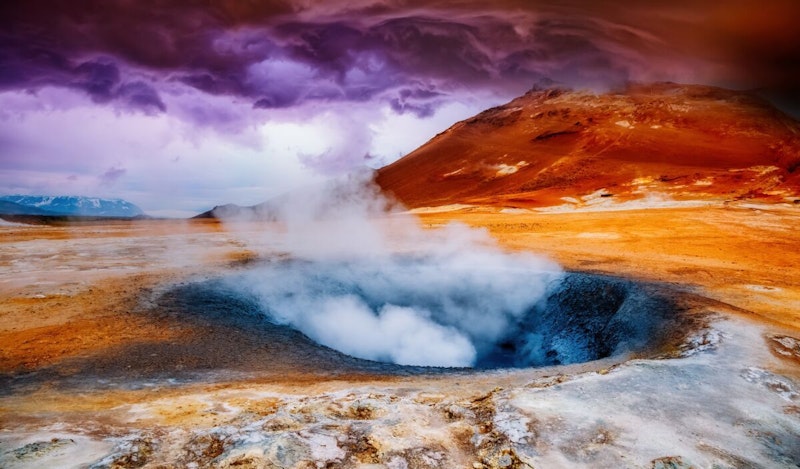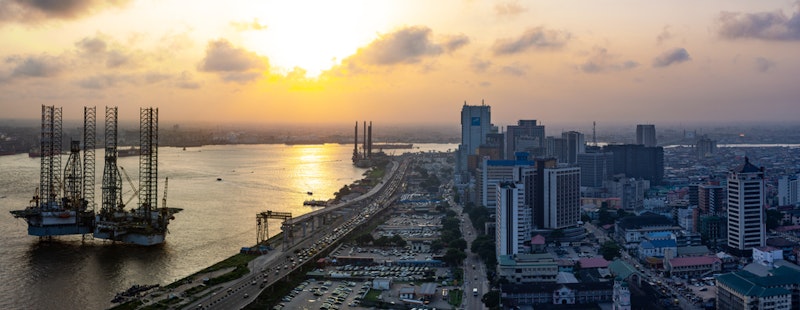Study Notes
GCSE Geography | Causes of Energy Insecurity (Resource Management - Energy 2)
- Level:
- GCSE
- Board:
- AQA, Edexcel, OCR, Eduqas
Last updated 17 Oct 2024
Access to energy is unequal across the globe - with many regions suffering from energy insecurity, where their supply may be interrupted, with the potential for blackouts. There are many factors that affect this...
Physical factors
Climate
Renewable energy sources are often dependent on the climate, for example countries with a greater number of sunshine hours year-round are much more suitable for solar power, whereas coastlines or upland areas are good for wind power. Hydroelectric power not only requires uplands but also needs to be sited in an area where rainfall is high.
Geology
Geology plays an important role in the availability of fossil fuels, for example, natural gas and oil is trapped in layers of rock, so if a country doesn't have deposits of fossil fuels they may struggle with energy security. But it isn't just the presence of fossil fuels that is important, we also need to consider on how accessible the supply is - how easy is it to extract it? Also what is the extent of the supply - is there enough to exploit for many years? If not, it's probably not worth the investment into exploiting them. Finally, can the country actually afford to exploit these resources and does it have the technology needed to do so? Many LICs do not.
Areas along plate boundaries that experience tectonic activity are able to produce geothermal energy, e.g. Iceland (see image below).

Economic factors
Cost of exploitation and production
Some energy sources are much more costly to set up and exploit than others, which means they are much more difficult to use in LICs and NEEs. For example, nuclear power stations are very expensive to build due to the level of technology involved, and oil rigs and pipelines require a huge investment in infrastructure, and need huge refineries to process the oil once extracted - such as the one at Ellesmere Port in North-west England, pictured below.
Technology
Although many countries can’t fully exploit their natural resources due to a lack of technology, technological advances have allowed HICs to exploit energy sources in remote or difficult environments, such as the North Sea and the Arctic. Although the initial investment in technology can be high, the overall costs of exploitation are often reduced. Technology has enabled the UK to experiment with extracting shale gas through the process of fracking.

Political factors
Countries need to be on friendly terms, with a stable relationship, in order to secure energy supplies. Political instability in certain areas means that many countries are looking for alternative sources of energy, for example, the Russia-Ukraine conflict has prevented many countries from buying coal and gas from Russia, but also various conflicts in the Middle East have made many countries look elsewhere for their supplies of oil, and a lack of political stability up until the late 1990s, meant that other countries were unwilling to import oil from Nigeria, despite its vast oil reserves, such as the oil field just off the coast of Lagos, pictured below.
Additionally, countries make policy decisions that affect their own energy mix, for example Germany announced that it was stopping nuclear energy production in 2020; but delayed these plans in 2022 as a result of the conflict. The UK has stopped subsidising renewable energy schemes, such as solar panels, despite our targets to reduce carbon emissions.

You might also like

3 great simulation games for geography lessons
2nd February 2016

There's Energy in Those Mountains
3rd January 2017
Resource Development Stage
Study Notes

China's Huge Panda-shaped Solar Farm
3rd August 2017

Seaweed as a Source of Renewable Energy
11th January 2018
Resource Management (Water) | AQA GCSE Geography
Quizzes & Activities